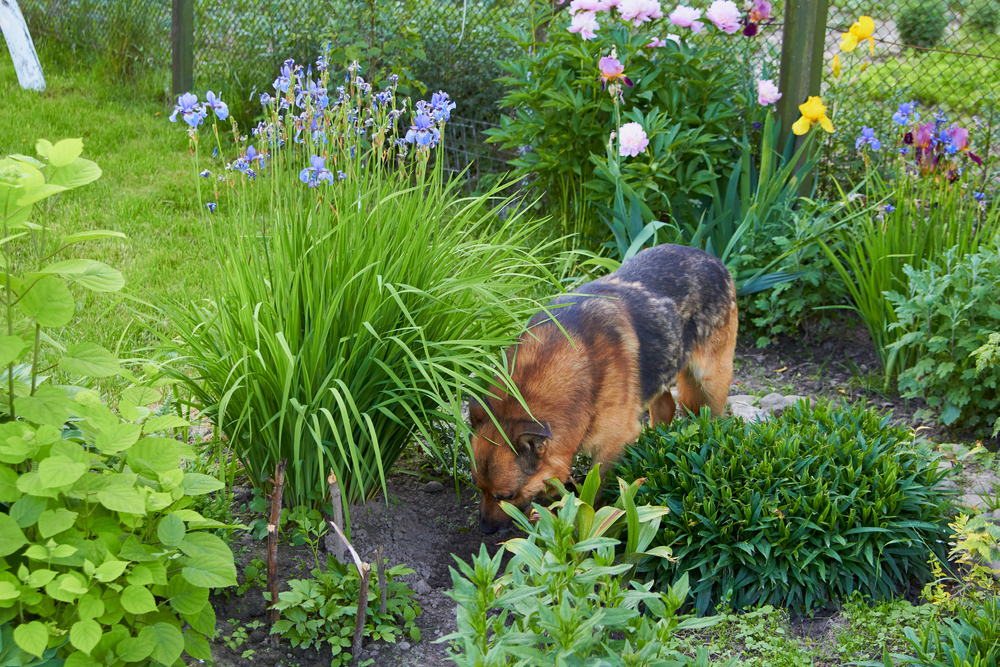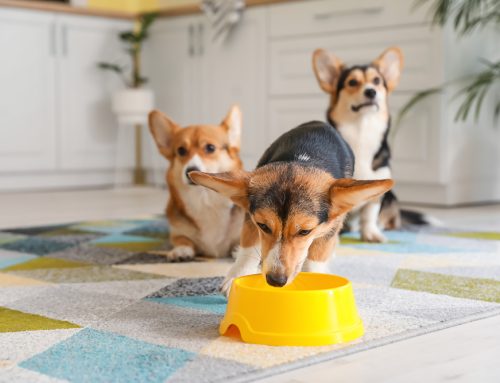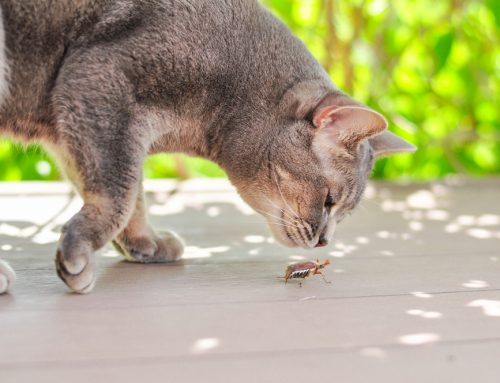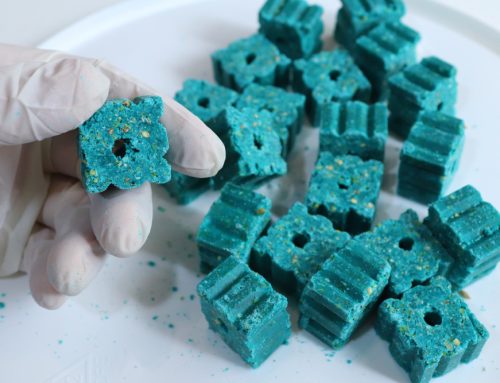Many common pet toxins lurk throughout your home and can pose a significant danger to your pet. Learn where common pet toxins hide with help from our Animal Hospital of Parkland team.
Pet toxins hide in your kitchen
Many foods in your fridge or pantry are toxic to pets, including:
- Chocolate — This sweet treat contains caffeine and theobromine, which can cause vomiting, diarrhea, hyperactivity, increased heart rate, tremors, and seizures, among other problems. The darker the chocolate, the more dangerous it is for your pet.
- Allium vegetables — Vegetables such as onions, leeks, shallots, chives, and garlic found in the Allium family contain N-propyl disulfide, which causes oxidative damage to a pet’s red blood cells (RBCs), resulting in anemia. Initial signs include vomiting, but as the RBCs decrease, signs include weakness, pale mucous membranes, and blood-tinged urine.
- Grapes — The likely toxic component in grapes, raisins, and currants is tartaric acid, which causes kidney failure in pets. Early signs include vomiting, lack of appetite, lethargy, and diarrhea, and, as the poisoning progresses, excessive thirst and urination, abdominal pain, and collapse.
- Xylitol — Xylitol is a sugar alcohol frequently used in sugar-free foods, candies, and supplements and can cause hypoglycemia and liver damage in pets. Signs include vomiting, lethargy, ataxia, tremors, seizures, and jaundice.
- Macadamia nuts — Macadamia nuts contain an unknown toxin that causes muscle weakness, vomiting, lethargy, and hyperthermia in pets.
Pet toxins hide in your medicine cabinet
Many human over-the-counter and prescription medications are toxic to pets, including:
- Ibuprofen — This nonsteroidal anti-inflammatory drug (NSAID) is commonly used as a pain reliever and fever reducer. It can cause gastrointestinal (GI) ulceration and kidney damage in pets, and signs include vomiting, dark, tarry stools, lack of appetite, lethargy, and coma.
- Acetaminophen — Acetaminophen is a popular pain reliever that can cause liver damage in pets. Cats are especially sensitive to acetaminophen because they are unable to metabolize the drug efficiently. Signs include lack of appetite, lethargy, salivation, vomiting, and respiratory distress.
- Pseudoephedrine — Pseudoephedrine is commonly found in cold, allergy, and sinus medications. This drug causes nervous and cardiovascular system stimulation, leading to signs that include hyperactivity, tremors, increased heart rate and blood pressure, and hyperthermia.
- Antidepressants — Many antidepressant medications are on the market, and they can all cause problems for your pets. Signs depend on which specific medication your pet ingests, but may include lethargy, agitation, increased or decreased heart rate and blood pressure, tremors, and seizures.
- Attention deficit and hyperactivity disorder (ADHD) drugs — ADHD medications are stimulants and cause signs that include hyperactivity, increased heart rate, hyperthermia, tremors, and seizures.
- Calcium channel blockers — Commonly used to treat heart disease and regulate blood pressure, calcium channel blockers can cause heart failure and secondary kidney failure. Signs include a slowed heart rate, vomiting, weakness, and collapse.
Pet toxins can be found in your supply closet
Toxins commonly found in supply closets include:
- Glue — Wood glues, construction glues, and high-strength glues can cause GI irritation, and when they mix with stomach acid, they can expand rapidly, causing a large, firm foreign body obstruction. Signs include drooling, retching, vomiting, lack of appetite, and distended stomach.
- Laundry detergent pods — Laundry pods contain highly concentrated detergent that can be forcefully expelled if your pet bites down on a pod. If that happens, your pet can easily ingest or aspirate the contents. Signs include vomiting, drooling, diarrhea, coughing, and difficulty breathing.
- Fabric softener sheets — Fabric softener sheets contain cationic detergents that can cause drooling, vomiting, oral and esophageal ulcers, and fever.
Pet toxins can be found in your garage
Toxins commonly found in garages include:
- Rodenticides — Several rodenticide products are available, and they are all toxic to pets. Anticoagulants interfere with a pet’s clotting ability, causing signs that include lethargy, pale mucous membranes, and bleeding from body openings. Bromethalin rodenticides cause cerebral edema and neurological signs, and cholecalciferol rodenticides lead to kidney failure.
- Antifreeze — Many antifreeze products contain ethylene glycol, a sweet-tasting liquid that attracts pets. When ingested, this substance causes severe kidney failure. Signs include vomiting, lack of coordination, excessive thirst and urination, seizures, and coma.
Pet toxins can be found in your garden

These toxins include:
- Fertilizers — Pets are frequently attracted to fertilizers, especially those made from organic products, but these products are toxic to pets, causing vomiting and diarrhea.
- Lilies — Toxic varieties include the Tiger, Stargazer, Easter, Oriental, and Daylily. All parts of the lily are toxic to pets, including the water in the vase if you use the flowers to decorate your home. Cats are especially sensitive to lily toxicity, and signs include vomiting, drooling, lack of appetite, lethargy, and increased thirst and urination.
- Tulips — Tulip bulbs are extremely toxic to pets, causing GI irritation, drooling, lack of appetite, lethargy, convulsions, and cardiac abnormalities.
- Autumn crocuses — Ingesting these plants can cause oral irritation, bloody vomiting, diarrhea, multi-organ damage, and bone marrow suppression.
- Chrysanthemums — These plants contain pyrethrins, which are irritating to a pet’s GI tract and cause drooling, vomiting, and diarrhea.
Knowing where toxins lurk in your home can help you protect your pet from exposure. If your pet ingests a toxin, contact our Animal Hospital of Parkland team or Animal Poison Control to get expert advice on how to care for them.












Leave A Comment